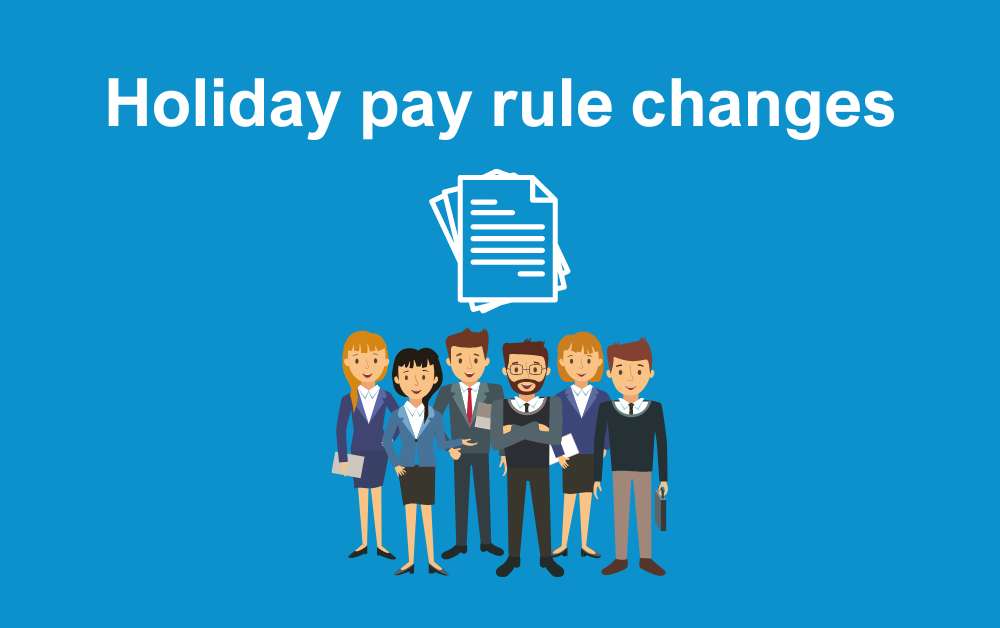Recent employment tribunal cases have left employers exposed to potential claims for holiday arrears, which could stretch back as far as 1998 when the Working Time Regulations were introduced.
The purpose of this information sheet is to share the recent cases and highlight any potential risk with a view to us working together to review existing practices and find a solution.
There are 2 scenarios around holiday pay which are under scrutiny – commission and overtime.
Commission
In a recent EU ruling, in Lock v British Gas Trading Ltd, the European Court ruled that sales commission should be taken into account when calculating holiday pay. In this case, Mr Lock, a Sales Consultant with British Gas, he brought a tribunal claim against them for an unpaid holiday. Mr Lock was paid a basic salary plus commission (paid in arrears) for sales made in preceding periods and his commission equalled around 60% of his total earnings. The pay he received during his holiday includes a commission from sales achieved in previous months, but he was obviously unable to make sales during his holiday. This being the case, the court’s belief is that such a scheme might deter him from taking leave.
The case has now been referred back to the UK Employment Tribunal to consider how the commission element should be calculated, as there are various options available to calculate this, including average earnings over the preceding periods.
I’m sure as an employer, you find this extraordinary, as clearly if a sales rep is on holiday, he or she is not generating any business for you and therefore you are thinking why would you pay a commission when they’re on annual leave.
This ruling won’t just apply to sales reps, but any of your employees who earn regular commission or bonus payments as part of their employment will be affected.
Overtime
The EU ruling on a commission is similar to the developing case law around whether overtime payments from regular, albeit non-contractual, overtime, should also be included in calculating statutory minimum holiday pay.
The employers in these cases have appealed the Employment Tribunal’s finding, in Neal v Freightliner Ltd, that regular overtime pay should be included. That appeal, and a similar case (Fulton & Baxter v Bear Scotland Ltd) have been joined, and are due to be heard by the end of July, but again dependent on the outcome, the courts will need to make a judgement on how this is calculated.
So what does this mean?
If you have an employee contracted to work 37.5 hours per week and is paid for any overtime, then the developing case is around whether this overtime should be taken into account when the employee is on holiday. For example, Jimmy is employed to work 37.5 hours per week but on average works 42 hours per week and is paid for these hours.
Currently, when Jimmy is on holiday, he is paid for his contractual hours of 37.5 hours. The developing case is arguing that Jimmy should be paid the average earnings, in this case, 42 hours, when he is on holiday.
Average earnings will be based on the 12 weeks previous to the leave being taken, or it could be calculated over a 17 week period. At this stage, we do not know what the final outcome will be.
What do we need to do?
A sensible approach is to audit current arrangements, look at whether overtime and bonus payments are a factor, and calculate what, if any, the costs are.
For an employee to lodge a claim, they would have to do so within 3 months of the last underpayment. This means ex-employees are unable to lodge a claim unless they do so within 3 months of leaving your employment. However, existing employees can raise a claim and there’s a real potential this could go back as far as 1998 or their first date of employment, whichever date is earliest.
They can also only claim in respect of the EU rules which are four weeks basic holiday entitlement, and not the 5.6 statutory that we give in the UK. This also applies to where you give enhanced holidays, for example, based on length of service.
Can I avoid any claims?
The Trade Unions and several Employment Lawyers are actively promoting these cases, encouraging employees to approach them if they feel they have a claim. This will only intensify once the overtime decision has been announced; therefore it’s highly likely that employees will soon start asking questions about holiday payments, especially as these cases will attract some media attention.
At the moment, these proposed changes are not law, so you’re not obliged to do anything at this stage. However, we should audit existing arrangements to establish if there is a risk.
If there are employees who would be affected by these developments, one way to avoid backdated claims would be to make a change to the existing arrangements, without drawing too much attention to it. If this arrangement is in then place for 3 months, and an employee has not raised a claim, they would be unable to do so in the future, even if this does become law.
It is hoped the UK government would challenge the EU on these cases, particularly around backdated claims, as clearly, this could be damaging for your business where you could be exposed to tribunal claims on backdated holiday pay around bonuses and overtime.
What to do next?
My advice is to assess potential exposure to claims. The first step in assessing holiday pay going forward is to consider how you currently calculate “normal pay” in respect of holiday periods for commission based employees.
The second step is to carry out the same exercise for overtime workers. Remember, salaried employees who are not paid for overtime will not be affected by this – it will only apply to employees who are eligible for overtime payments.
Exposure to claims for back pay should also be considered in order that financial provision can be made where appropriate. The categories of affected workers will need to be established, together with an assessment of the figures likely to be involved in the event of any claims for back payment.
If these developments will affect your business, please contact me on the details below and we can arrange a meeting to discuss this face to face.







